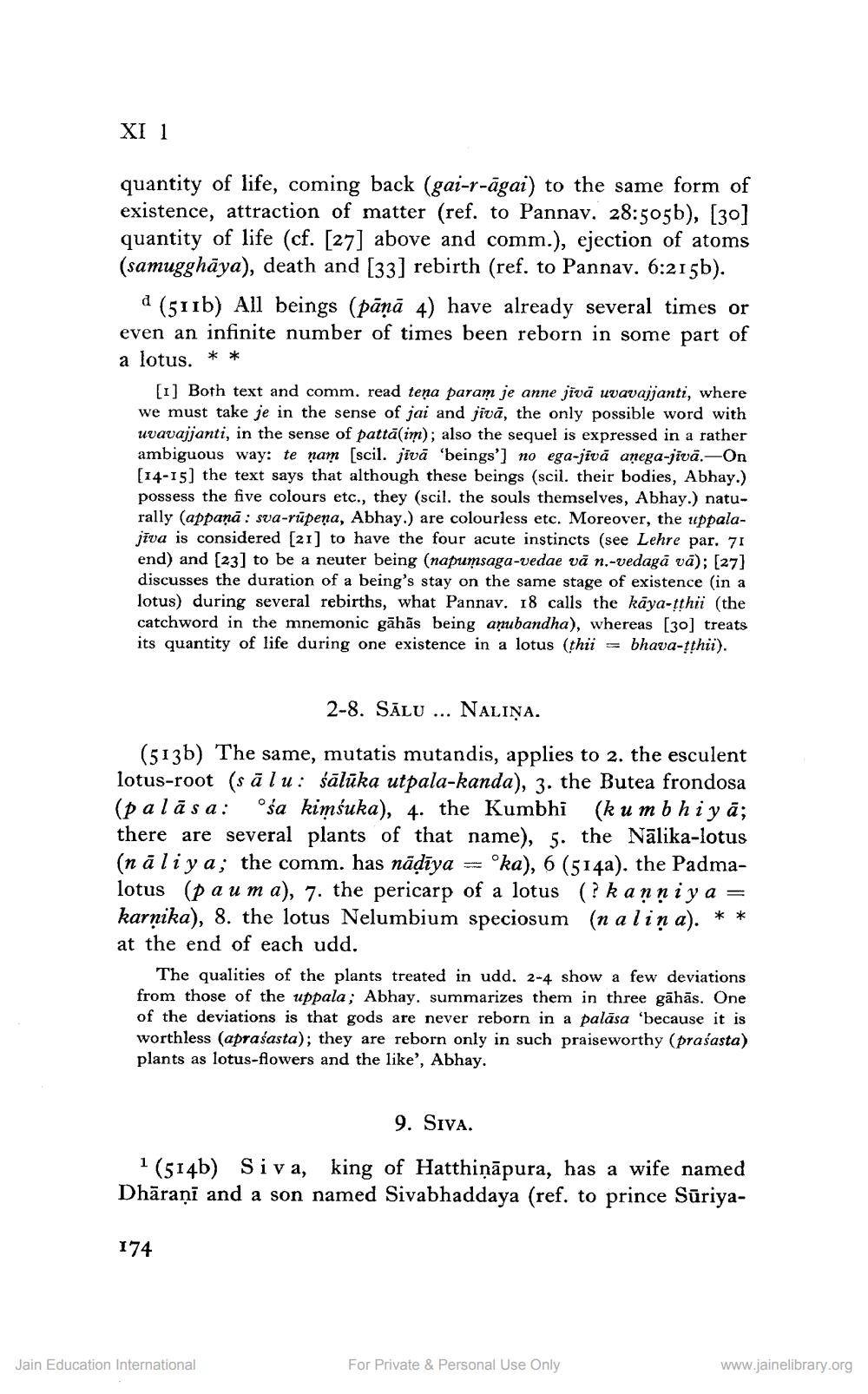________________
XI 1
quantity of life, coming back (gai-r-āgai) to the same form of existence, attraction of matter (ref. to Pannav. 28:505b), [30] quantity of life (cf. [27] above and comm.), ejection of atoms (samugghāya), death and [33] rebirth (ref. to Pannav. 6:215b).
d (511b) All beings (pāņā 4) have already several times or even an infinite number of times been reborn in some part of a lotus. * *
[1] Both text and comm. read teña param je anne jīvā uvavajjanti, where we must take je in the sense of jai and jivā, the only possible word with uvavajjanti, in the sense of pattā(im); also the sequel is expressed in a rather ambiguous way: te nam [scil. jīvā beings'] no ega-jīvā anega-jīvā.-On (14-15] the text says that although these beings (scil. their bodies, Abhay.) possess the five colours etc., they (scil. the souls themselves, Abhay.) naturally (appanā: sva-rūpeṇa, Abhay.) are colourless etc. Moreover, the uppalajīva is considered [21] to have the four acute instincts (see Lehre par. 71 end) and [23] to be a neuter being (napumsaga-vedae vā n.-vedagā vā); [27] discusses the duration of a being's stay on the same stage of existence in a lotus) during several rebirths, what Pannav. 18 calls the kāya-tthii (the catchword in the mnemonic gāhās being amubandha), whereas [30] treats its quantity of life during one existence in a lotus (thii = bhava-tthii).
2-8. SĀLU ... NALIŅA.
(513b) The same, mutatis mutandis, applies to 2. the esculent lotus-root (sālu: śālūka utpala-kanda), 3. the Butea frondosa (palāsa: osa kimśuka), 4. the Kumbhi (k u mbhiyā; there are several plants of that name), 5. the Nālika-lotus (nāliya; the comm. has nādīya = oka), 6 (514a). the Padmalotus (p a um a), 7. the pericarp of a lotus (? kaņņi y a = karņika), 8. the lotus Nelumbium speciosum (n aliņa). ** at the end of each udd.
The qualities of the plants treated in udd. 2-4 show a few deviations from those of the uppala; Abhay. summarizes them in three gāhās. One of the deviations is that gods are never reborn in a palāsa 'because it is worthless (aprašasta); they are reborn only in such praiseworthy (praśasta) plants as lotus-flowers and the like', Abhay.
9. SIVA.
1 (514b) Siva, king of Hatthiņāpura, has a wife named Dhāraņi and a son named Sivabhaddaya (ref. to prince Sūriya
174
Jain Education International
For Private & Personal Use Only
www.jainelibrary.org




